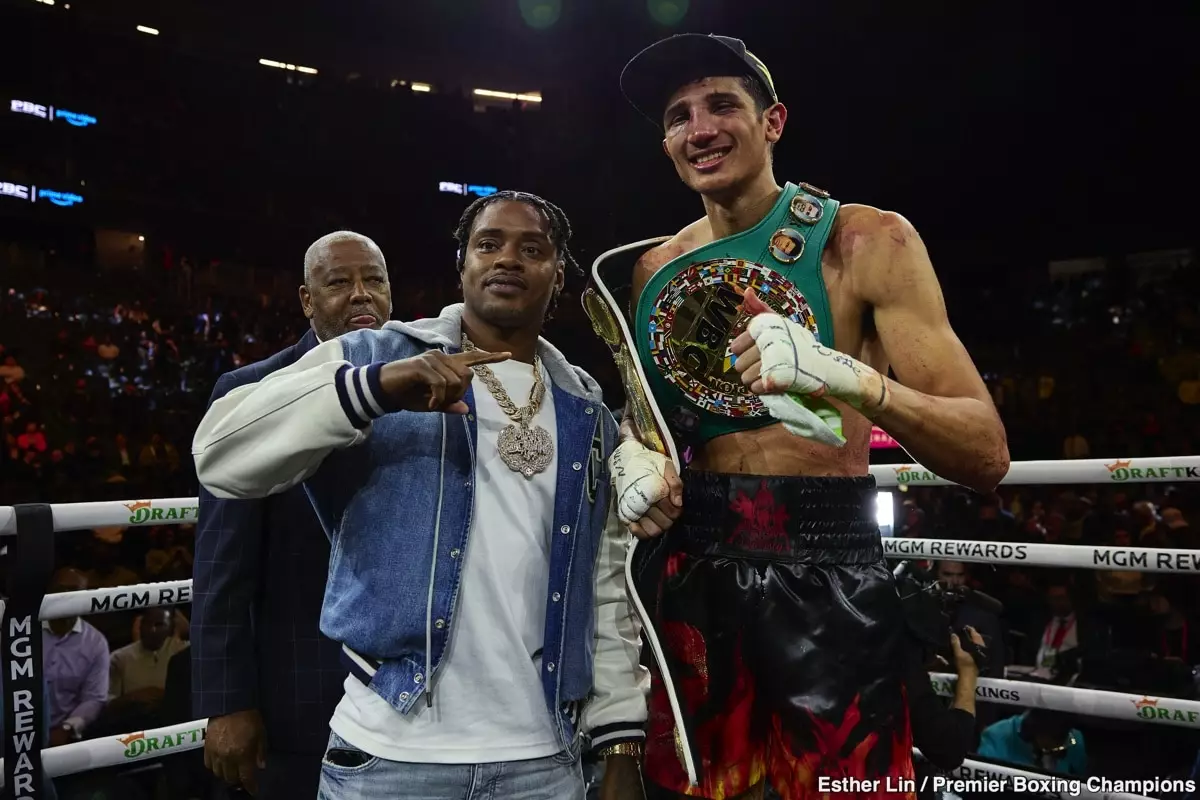The anticipated clash between Sebastian Fundora, the reigning WBC/WBO junior middleweight champion, and former champion Errol Spence has fizzled out, leaving fans and boxing aficionados grappling with the ramifications of this development. Fundora, whose professional record stands at 21-1-1 with 13 knockouts, is reportedly seeking alternative challengers, with Charles Conwell emerging as a potential opponent. The fallout from this canceled bout emphasizes the complexities of the boxing landscape, particularly in the junior middleweight division, where opportunities hinge on rankings, inactivity, and shifts in fighters’ career trajectories.
The World Boxing Organization (WBO) President, Gustavo Olivieri, revealed key reasons for the organization’s decision not to sanction the Fundora-Spence fight. Spence has been inactive for a significant 18 months and most recently suffered a defeat against Terence Crawford. Moreover, he is not ranked within the WBO’s 154-pound listings and has no prior experience competing at this weight class. Each of these factors painted Spence as a less viable opponent for Fundora, underscoring the imperative for champions to remain consistently active and competitive.
Adding another layer to the narrative, Terence Crawford tweeted a pointed message hinting at missed opportunities, seemingly directed at Fundora. His statement that Fundora should have seized the chance to fight him suggests a larger commentary about timing and risk in professional boxing. With Crawford now eyeing a lucrative showdown against Canelo Alvarez, the notion of facing Fundora appears less appealing. This pivot indicates Crawford’s desire to maximize his earning potential without jeopardizing his standing by engaging in high-risk encounters.
For many fans, the cancellation of the Fundora-Spence match has not sparked outrage, largely due to perceptions of Spence’s current form. Having recently faced a knockout loss to Crawford and previously struggling against Yordenis Ugas, the 35-year-old Spence appears to be on the decline. Critics argue that his performance has diminished, raising questions about his fitness to challenge an up-and-coming talent like Fundora. As boxing fans remain divided, the importance of maintaining a competitive edge becomes evident, with inactivity and previous losses casting shadows on a fighter’s legacy.
As Fundora now pivots toward potential challengers like Conwell, the broader implications for the junior middleweight division become clear. The fluid nature of matchups and titles demands that champions stay active against worthy opponents. For Fundora, staying relevant in discussions about the top-tier fighters in the division is vital. While the canceled fight with Spence may be seen as a setback, it could also represent an opportunity for Fundora to take on rivals who can elevate his status, help build his legacy, and, importantly, deliver exciting bouts for fans craving high-stakes action in the ring.
The boxing world thrives on unpredictability, and the cancellation of the Fundora-Spence fight is a testament to that reality. It highlights the strategic decisions fighters and promoters must make and underscores the importance of maintaining competition and relevance in a fast-evolving sport. As Fundora charts a new course, attention turns to how he will navigate the challenges ahead and assert his dominance in the junior middleweight division, while fans eagerly await what comes next in this constantly shifting landscape.


Leave a Reply